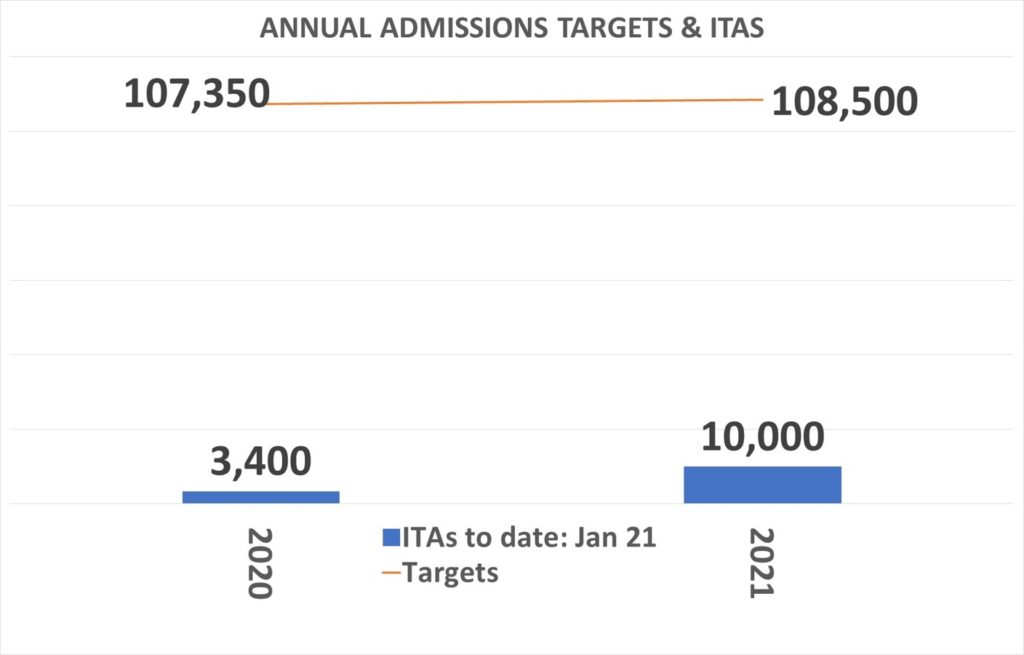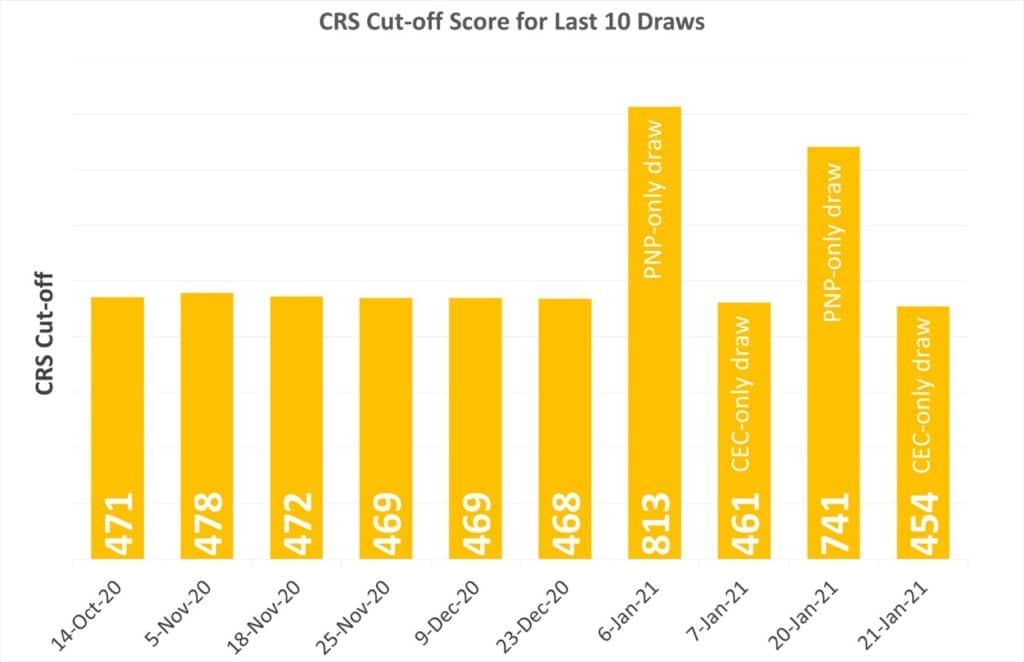IRCC invited Canadian Experience Class candidates and set the CRS cut-off requirement at 454.
IRCC held its second Express Entry draw this week on January 21.
Immigration, Refugee and Citizenship Canada (IRCC) issued 4,626 permanent residence invitations to candidates of the Canadian Experience Class. The Comprehensive Ranking Score (CRS) cut-off requirement was 454.
Today’s CRS cut-off score was seven points lower than the previous CEC-specific draw held on January 7, which had a CRS cut-off score of 461.
Express Entry has been Canada’s primary way of managing skilled worker applications since 2015.
As identified under its new 2021-2023 Immigration Levels Plan, IRCC is seeking to welcome some 110,000 Express Entry immigrants per year. Canada came close to this mark last year, when it had a record-breaking year for Express Entry, issuing a total of 107,350 permanent residence invitations. The Canadian government continues to stress that welcoming high levels of skilled immigrants during and after the COVID-19 pandemic will remain vital to supporting a strong economy.

There are two steps to the Express Entry process. First, skilled worker candidates need to see if they are eligible for at least one of the following programs: Federal Skilled Worker Program, Federal Skilled Trades Program, and Canadian Experience Class.
Candidates who are eligible for one of these programs can enter the Express Entry pool by submitting their profile onto IRCC’s website. IRCC will award them a Comprehensive Ranking System (CRS) score that is based on criteria such as their age, education, work experience, language experience, among other human capital factors.
In the second step, IRCC operates Express Entry draws usually every two weeks and issues Invitations to Apply (ITAs) for permanent residence to candidates based on IRCC’s policy goals and CRS cut-off requirements.
Today’s draw is the fourth of 2021. IRCC held a draw for Provincial Nominee Program (PNP) candidates on January 20.

Candidates who receive a provincial nomination through Express Entry get an additional 600 CRS points which essentially guarantees they will obtain an ITA.
IRCC is yet to hold an all-program draw in 2021.
The return to PNP- and CEC-specific draws is a strong sign that IRCC will rely heavily on Express Entry candidates currently in Canada to try and achieve its immigration targets for 2021. At the same time, it does appear strongly likely that FSWP and FSTP candidates will also be considered for Express Entry draws in 2021, even during the coronavirus pandemic. Last year, IRCC held PNP- and CEC-specific draws when the pandemic began but ended 2020 by holding numerous all-program draws, enabling FSWP and FSTP candidates to also obtain ITAs.
The following hypothetical candidate received an ITA today:
Arjun is 28, single, and a business analyst. He holds a bachelor’s degree from India and a master’s degree from Canada. Arjun has worked in Canada for the past three years. He obtained IELTs scores corresponding to CLB 8 in writing and CLB 9 in reading, listening, and speaking. Arjun’s CRS score of 474 would have been enough to receive an invitation in today’s draw.
Sources : cicnews

















